Girls on Film: 8 femme-centric movies from the Toronto International Film Festival
Our roundup of the most notable movies by and about women from this year's festival

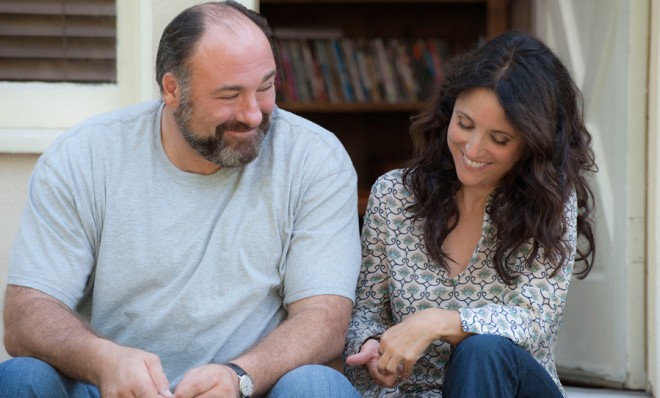
A free daily email with the biggest news stories of the day – and the best features from TheWeek.com
You are now subscribed
Your newsletter sign-up was successful
TORONTO, CANADA — Women are doing a little of everything at the Toronto International Film Festival this year, with films ranging from epic desert adventures to toxic family reunions — and in just a week of films, some of cinema's most noted female filmmakers (including Claire Denis and Nicole Holofcener) have already had their work screened. Julia Roberts gave Meryl Streep a run for her money in August: Osage County; Catherine Breillat explored her own experiences with a legendary con man in Abuse of Weakness; and Charles Dickens' mistress took center stage in The Invisible Woman.
The films screened so far have been a mix of highs and lows. There's a thrill to seeing Isabelle Huppert play a fictionalized version of Catherine Breillat — a take on womanhood we never see as her protagonist cackles with laughter at the darkest things, including her own physical pain and suffering. It's a pleasure to see Zoe Kazan continue to defeat rom-com tropes. But there's also been disappointment; multiple treatments of real-life girl-as-muse stories that fail to relay the passions and motivations of the players involved, or stories of desperate women falling for domestic abusers.
Here, some of the notable femme-centric and directed films from the Toronto International Film Festival:
The Week
Escape your echo chamber. Get the facts behind the news, plus analysis from multiple perspectives.

Sign up for The Week's Free Newsletters
From our morning news briefing to a weekly Good News Newsletter, get the best of The Week delivered directly to your inbox.
From our morning news briefing to a weekly Good News Newsletter, get the best of The Week delivered directly to your inbox.
1. The F Word
Directed by Michael Dowse
Starring Daniel Radcliffe, Zoe Kazan
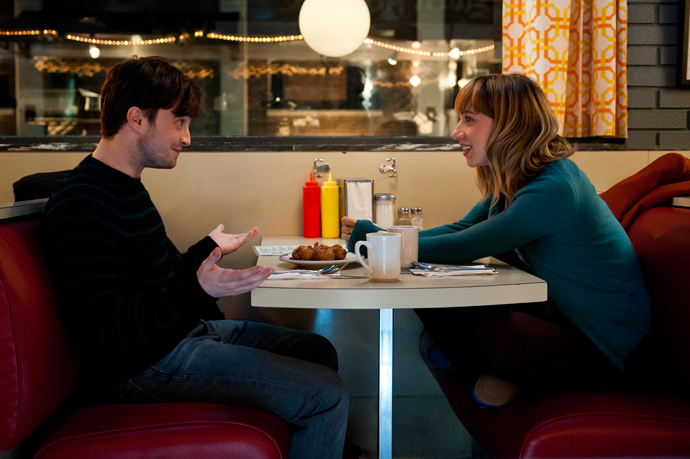
What is it?
A free daily email with the biggest news stories of the day – and the best features from TheWeek.com
Toronto is once again the epicenter of romantic ennui. Just as Scott Pilgrim fell for Ramona Flowers, heartbroken Wallace (Radcliffe) has fallen for Shantry (Kazan), who just wants to be friends. The pair become close as they explore the city, with Toronto finally getting to be itself in a movie, and not just a double for New York or Chicago. As the duo banter with a speed and ease that would make the Gilmore Girls proud, Wallace's romantic feelings gradually take control and threaten their close-knit friendship.
Should you see it?
Definitely! Led by Radcliffe and Kazan's great chemistry, The F Word explores what it means to be friends, skillfully avoiding the usual romantic comedy pitfalls that have destroyed the genre in recent years. From Wallace's family bonding over a horror movie to Adam Driver's nacho reverence as best friend Allan, the film broadens the personalities and interests far beyond weaker examples of the genre, offering a perfect follow-up to Kazan's trope-destroying Ruby Sparks.
2. The Invisible Woman
Directed by Ralph Fiennes
Starring Ralph Fiennes, Felicity Jones
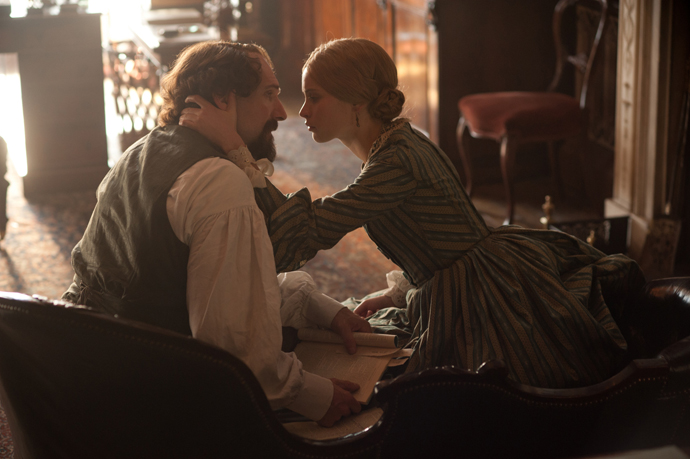
What is it?
When Charles Dickens was in his forties, he met and fell in love with teenage actress Nelly Morgan. The affair drove the famed author to unceremoniously dump his wife of two decades and keep his new love as a mistress for the last 12 years of his life. (Divorce was out of the question at the time.) The Invisible Woman follows Nelly as she reconciles her past with her present, jumping back and forth in time as life leads her down the path of memory.
Should you see it?
No. There are some interesting elements to the story, which was written by The Iron Lady's Abi Morgan — but ultimately, the film's aloof gentility quashes any chance of real engagement. This is Nelly's story, but it's told from the same arm's length shown to Dickens. Much of The Invisible Woman is pure speculation, since both participants burned their correspondences. The film's shining moments, therefore, come not from Nelly and Charles' story, but rather how his wife dealt with such a blow. Fiennes treats her with respect, avoiding the usual tendency to make the old wife an oppressive force the creative man must leave. But Mrs. Dickens is merely the adoring wife who got too old and too practical. In that, and Joanna Scanlan's excellent performance, lies the truly interesting story here.
3. Enough Said
Directed by Nicole Holofcener
Starring Julia Louis-Dreyfus, James Gandolfini, Catherine Keener
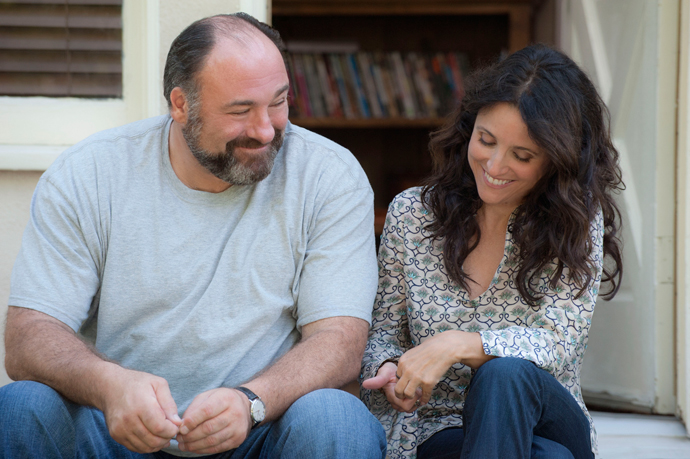
What is it?
Louis-Dreyfus stars as Eva, a divorced, middle-aged masseuse forced to face her empty life as her only daughter prepares to go away to college. As she wonders what new hobbies she could take on to fill the loneliness, she meets a new client, Marianne, and a new boyfriend, Albert. After getting over her issues with his weight, life looks up — until she realizes that the terrible ex Marianne is always ranting about is also her new boyfriend. Eva must decide if she wants the friend or the lover, and more importantly, whether she'll trust her gut, or the biased insights of a jaded ex.
Should you see it?
Definitely. This is one of Gandolfini's final performances, and it's Holofcener's most marketable film, jamming the romantic comedy full of engaging humor as Eva and Albert bond through self-deprecation and quirks. Even better, the film isn't satisfied to stick solely to its love story. Enough Said is as much about one woman rediscovering her own life as it is her rediscovering romance, allowing the film to avoid the usual rom-com pitfalls. Holofcener gives her characters more than just jokes; she gives them relatable humanity.
4. Abuse of Weakness
Directed by Catherine Breillat
Starring Isabelle Huppert, Kool Shen
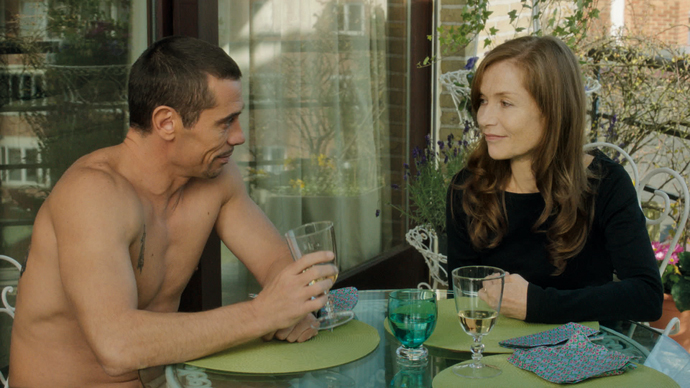
What is it?
In 2004, controversial director Catherine Breillat suffered a stroke that partially paralyzed her. As she recovered, she jumped headfirst into her filmmaking, choosing infamous con man Christophe Rocancourt as her next star. Unfortunately, she was also his next target, as he abused her weakness until she'd given him close to a million euros. This film retells the story, with Isabelle Huppert stepping into Breillat's real-life role.
Should you see it?
Maybe. It's never easy to sum up a Breillat film into a yes or no. Abuse of Weakness is certainly one of her most accessible films, and Huppert gives an absolutely commanding performance, nailing both the struggles in her new life and the director's own adoration of darkness and hatred, which is no easy feat. But this isn't a film with real answers and relatability. Breillat can offer no excuse for why she so willingly gave Rocancourt so much money, other than, "It was me, and it wasn't me." There are answers of course, as strokes are known to cause cognitive and reasoning issues — but this is Breillat, and she relishes the unspoken.
5. Night Moves
Directed by Kelly Reichardt
Starring Jesse Eisenberg, Dakota Fanning, and Peter Sarsgaard
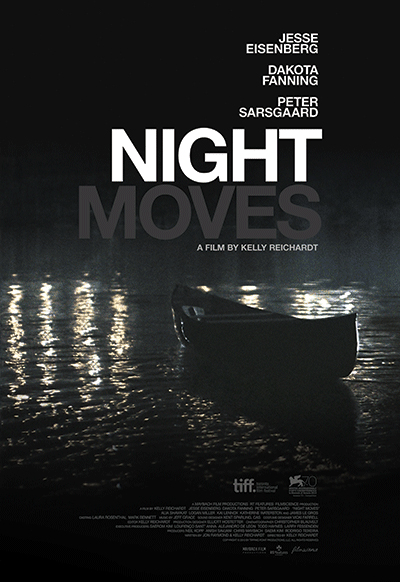
What is it?
Josh and Dena are environmentalists who have grown tired of making only small environmental improvements like community CSAs and holistic retreats. Using her family's money, they buy a boat and meet up with an ex-military type to make a larger statement by blowing up a local dam. The trio are successful and evade capture, but Josh and Dena are unable to escape the impact and consequences of their actions.
Should you see it?
Definitely. Night Moves is one of Reichardt's most compelling films, and definitely her most accessible. Though she's taken a step closer to the mainstream with more dialogue and narrative twists, the director has easily maintained her distinctive voice. Reichardt infuses the film with as much anxious silence as she does exposition, relishing a sort of suffocating insignificance that isn't about the fear of capture, but a single action's impact on the psyche.
6. August: Osage County
Directed by John Wells
Starring Meryl Streep, Julia Roberts, and many more
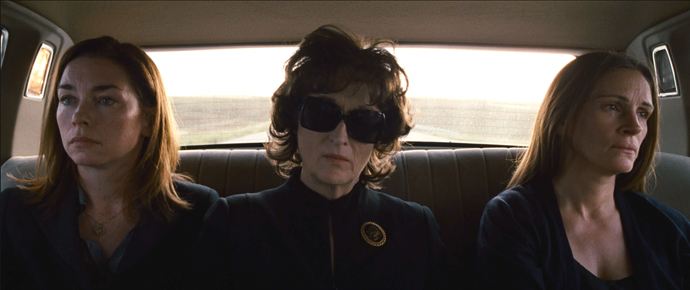
What is it?
Based on Tracy Lett's Pulitzer Prize-winning play of the same name, August follows the hideously dysfunctional Weston family, who come together and weather the wrath of matriarch Violet when her husband disappears. The reunion overflows with terrible familial secrets, verbal abuse, and every other negative element one family could possibly boast.
Should you see it?
Only if you're interested in the performances. Ultimately, this is a play — a volley of insults that works best in an intimate, in-person space where the tension flows through the air. As a film, it's well-acted but unnecessary. Streep's name will inevitably be tossed around at Oscar time, but she's not the highlight here; while the performance is flawless, it's nothing we haven't seen her to do before. On the other hand, Julianne Nicholson's performance as daughter/sister Ivy steals the show with an emotional softness. She's well-balanced by Julia Roberts, who is absolutely delightful when she throws angry f-bombs — reminding us that when she's not doing uber-mainstream shlock, she can whip out a performance in films like Closer and now August.
7. Lucky Them
Directed by Megan Griffiths
Starring Toni Collette, Thomas Hayden Church, Ryan Eggold
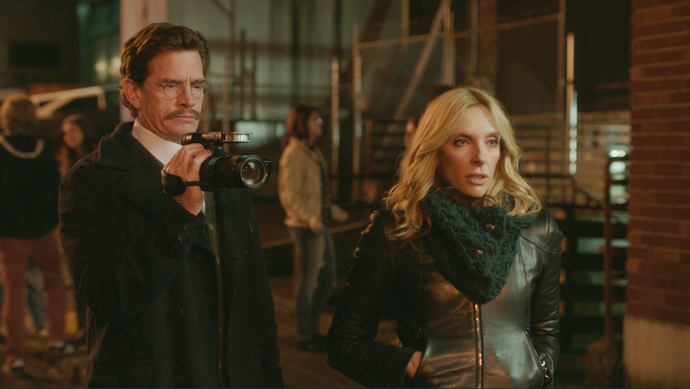
What is it?
Ellie is a messed up music critic slacking through her job and life; she sleeps with her interviewees and blows off work, almost getting canned in the process. She gets one last shot: Writing about the legacy of her ex-boyfriend musician, who disappeared 10 years earlier while they were dating. The plan: She will follow leads on online message boards and hunt down her presumed-dead ex with a grand to pay sources. Of course, she loses that money before she even gets started and has to beg help from yet another ex. He agrees to pay, but only if she lets him record the journey for his first documentary film.
Should you see it?
Skip it. Lucky Them's engaging moments don't pay off in the end. The film is at its best not when it focuses on Collette, but on Church, who imbues his ridiculous, aimless, music-hating rich dude character with a surprising amount of warmth. Collette, on the other hand, can offer the emotion, but not a believable rocker woman. This is a music film with a distinct lack of music passion, save for a few small live performances that Ellie attends. It's missing the spark that makes films like High Fidelity or Almost Famous hits — the undeniable passion for the form it purports to be celebrating.
8. How I Live Now
Directed by Kevin Macdonald
Starring Saorise Ronan, Tom Holland, and Anna Chancellor

What is it?
When her father sends her to spend time with relatives she's never met in England, Daisy is angry. She passes the hours being openly hostile to her cousins, obsessively cleaning her hands, and avoiding anything that might have germs — until her sexy cousin Isaac cow-whispers, and then pushes her into a lake. She immediately becomes enamored with him and her new life, which is suddenly cut short as World War III descends.
Should you see it?
Skip it. The film is a compressed and nonsensical mess that can't be saved by a few truly terrifying war elements. There is no sense of time or character. One minute, Daisy hates her cousins and fears germs; the next, World War III hits and she's giving up her ticket home to stay with her cousin-turned-lover (not by blood — an addition to avoid the incest of the source material) and live in the woods, off of the land. Parental figures are nearly nonexistent, twists are too convenient, and without time to give the characters growth, their experiences fall flat.
Read more from the Toronto International Film Festival:
- Toronto International Film Festival: Nine movies you should know about
- What Hollywood rarities do these TIFF films share?
- TIFF Women Directors
- Canadian women in film to be honored at TIFF
- Liza Johnson on bringing out Kristen Wiig's dramatic side
- Louis-Dreyfus on Enough Said: "This is a film about human behaviour and it’s not necessarily gender-specific."
- Sandra Bullock on Gravity: "I wanted her to lose everything feminine or maternal about her. I wanted to get the body to be a machine that was effective for her brain."
- A review of Claire Denis' Bastards
Girls on Film is a weekly column focusing on women and cinema. It can be found at TheWeek.com every Friday morning. And be sure to follow the Girls on Film Twitter feed for additional femme-con.
Monika Bartyzel is a freelance writer and creator of Girls on Film, a weekly look at femme-centric film news and concerns, now appearing at TheWeek.com. Her work has been published on sites including The Atlantic, Movies.com, Moviefone, Collider, and the now-defunct Cinematical, where she was a lead writer and assignment editor.
